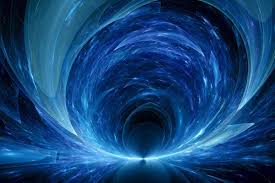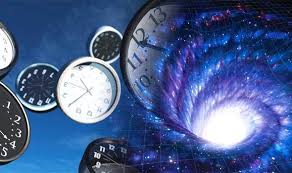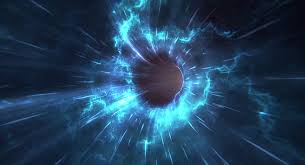
The Intricacies of Causal Loops and the Implications of Time Travel
The concept of time travel has always captivated our imagination, serving as a theme in science fiction and a playground for exploration among physicists. One intriguing aspect is the notion of encountering causal loops, where events from the past and future become entangled in a cycle of cause and effect.
In this article, we embark on a captivating journey through the intricacies of causal loops. We delve into their definition, examine the paradoxes they give rise to, and contemplate how they challenge our understanding of time and causality.
Defining Causal Loops

In the realm of time travel, a causal loop occurs when an event impacts an event in the past, thereby leading to the occurrence of the event in the future. Put simply, it creates a loop of cause and effect where they are intertwined and inseparable. This notion challenges our perception of time, where cause always comes before effect.
Causal Loops in Time Travel: The Bootstrap Paradox

One of the known examples of a causal loop in time travel is the bootstrap paradox. Let’s imagine a situation where a person travels back in time and gives Shakespeare a copy of his plays before he even writes them. Then Shakespeare published these plays. They become timeless classics. Now the question arises: who can be considered the author of these works?
The bootstrap paradox highlights the nature of causal loops. In this case, it seems like there is no origin for these works; they exist in an infinite loop where they are given to Shakespeare by the time traveler who drew inspiration from Shakespeare’s published works that were actually provided by themselves.
The Grandfather Paradox and Causal Loops

Another famous paradox is the grandfather paradox. If someone were to travel in time and prevent their grandfather from meeting their grandmother, it would create a confusing situation. Because if the grandparents never met, then the parents of the time traveler would never be born, ultimately leading to the nonexistence of the time traveler, who initially wanted to prevent their grandparents from meeting.
The solution to this paradox is closely connected to the idea of causal loops. Some interpretations suggest that any actions taken by the time traveler would somehow correct themselves. For instance, if they tried to stop the meeting but failed, that failure would ensure that the meeting still took place, thus guaranteeing the existence of the time traveler.
Quantum Mechanics and Causal Loops

Within the field of physics, scientists delve into the concept of causal loops by examining them through the lens of quantum mechanics and exploring closed timelike curves. These curves depict paths in spacetime that form loops, opening up possibilities for time travel. The creation of causal loops.
Renowned physicists such as Kip Thorne have put forward theories suggesting that closed timelike curves could potentially exist within the framework of relativity. However, there is still research and debate surrounding the nature of these curves and their implications.
The Philosophical and Ethical Implications of Causal Loops

The profound philosophical and ethical questions posed by causal loops and time travel challenge our understanding of will, determinism, and causality. If the future has the power to shape the past, it raises doubts about whether our actions have any agency. Does the existence of causal loops imply a predetermined destiny or fate?
Furthermore, we must consider the dilemmas that arise when contemplating the consequences of altering the past. The moral responsibility of time travelers comes into focus as we contemplate making choices that could lead to paradoxes, like the grandfather paradox.
The idea of causal loops in time travel is truly mind-boggling. Has captivated the minds of scientists, philosophers, and fans of science fiction. It challenges our understanding of time itself as cause and effect and even the very nature of reality.
While we may not have all the answers to the paradoxes and questions they pose, exploring the concept of causal loops adds depth to our exploration of the possibilities and limitations that come with time travel. As we delve further into the mysteries of spacetime, we discover that what makes loops so captivating is their ability to keep us engaged in a journey of contemplation and discovery.






Leave a Reply